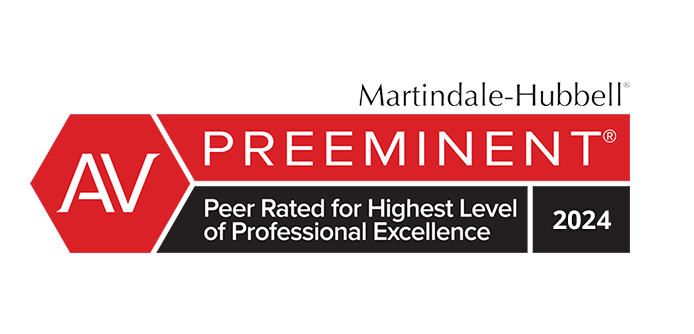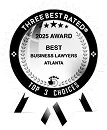- Home
- Practice Areas
- Litigation
- Adverse Possession
- Breach of Fiduciary Duty
- Business & Corporate Disputes
- Co-Counsel
- Commercial Litigation
- Construction Change Orders
- Construction Defects
- Contract Disputes
- Copyright & Trademark Infringement
- Evictions
- Failed Home Inspections
- General Civil Litigation
- Landlord Tenant Disputes
- Latent Defects
- Mechanic’s Liens
- Non-Compete Agreements
- Partition Actions
- Partnership Disputes
- Post-Judgment Collections
- Probate
- Quiet Title Actions
- Shareholder Agreement Disputes
- Business Law
- Asset Purchases
- Business & Corporate Disputes
- Business & Corporate Formation
- Business Outside In-House Counsel
- Business Sales & Purchases
- Buy-Sell Agreements
- Business Succession Planning
- Commercial Debt Collections
- Commercial Leases
- Commercial Litigation
- Commercial Real Estate
- Commercial Transactions
- Contract Disputes
- Contract Drafting
- Copyrights & Trademarks
- Corporate Bankruptcy
- Dissolution Actions
- Franchise & Dealership Law
- General Business Law
- General Partnerships
- Limited Liability Companies
- Limited Partnerships
- Mergers & Acquisitions
- Non-Compete Agreements
- Partnership Disputes
- Post-Judgment Collections
- Promissory Notes
- Shareholder Agreements
- Startups #GAStartupLawyer
- Sweepstakes & Prize Contests
- Real Estate Law
- Adverse Possession
- Commercial Leases
- Commercial Real Estate
- Construction Change Orders
- Construction Defects
- Contract Disputes
- Deed Drafting
- Evictions
- Failed Home Inspections
- HOA & COA
- Landlord Tenant Disputes
- Latent Defects
- Lease Purchases
- Mechanic’s Liens
- Partition Actions
- Promissory Notes
- Quiet Title Actions
- Seller Financing
- Short Sales
- Estate Planning
- Litigation
- Our Team
- Testimonials
- Blog
- Contact
- Contact Us
- Call Us: 678-882-0830
Atlanta Attorneys for Failed Home Inspections
Thrift McLemore’s Atlanta real estate attorneys help Georgia homebuyers handle disputes after a home inspection fails to uncover serious problems.
Schedule a Consultation
Buying a home is exciting, but it can also be stressful. You hire a home inspector to make sure you know exactly what you’re getting into. You trust them to find the problems you can’t see. So when you move in and discover water damage, foundation cracks, or electrical issues that were never mentioned in the report, it’s natural to feel frustrated and misled.
If your home inspection missed major issues, you have options under Georgia law. You may have a claim against the seller, the home inspector, or both.
Georgia’s “Buyer Beware” Rule and What It Really Means
Georgia follows a “buyer beware” approach to home sales. That means the buyer is responsible for checking out the property before closing. But that rule isn’t absolute. Sellers still have a legal duty to disclose defects they already know about, especially problems that wouldn’t be obvious during a routine inspection.
If a seller knew about something serious, like a leaking roof, a cracked foundation, or hidden mold, and didn’t say anything, that could be considered fraud or misrepresentation. The challenging part is proving that the seller was aware of it before you closed.
If you can’t prove that, your next step might be to look more closely at the home inspector’s role.
When a Home Inspector Can Be Held Responsible
A good inspector can save you from making a bad investment. A careless one can cost you thousands. Home inspectors in Georgia are trained to identify safety hazards, code violations, and signs of structural damage. When they miss something that another reasonable inspector would have caught, they may be held responsible for the resulting losses.
You can hold an inspector accountable under two main legal theories: negligence or breach of contract.
Negligence
Negligence means the inspector didn’t do their job the way a reasonably skilled professional should have. If another qualified inspector later finds serious defects that should have been noticed, that’s a red flag.
For example, a second inspection may reveal major water intrusion, rotted wood, or electrical problems that were visible during the original inspection but were overlooked. In that case, your inspector may not have met the professional standard of care.
It’s important to remember that inspectors are only responsible for issues they could reasonably observe during the inspection. If the utilities were turned off, for example, they wouldn’t be responsible for plumbing or electrical problems that couldn’t be tested.
Breach of Contract
A breach of contract happens when an inspector fails to perform the work they agreed to do. Your contract sets the expectations. If you paid for specific tests or evaluations, such as for lead paint, radon, or attic ventilation, and the inspector didn’t actually perform them, you may have a valid claim.
Your inspection report and contract are key pieces of evidence. They show what was promised and whether those promises were kept.
Understanding Liability Limits in Home Inspection Contracts
Many Georgia inspectors include terms in their contracts that try to limit their liability. These are known as exculpatory clauses. They often cap how much you can recover, sometimes limiting you to just the cost of the inspection itself.
Some contracts also require you to go through mediation or arbitration before you can file a lawsuit. These terms can slow things down, but don’t always eliminate your right to recover damages. A real estate attorney can review your contract and help you understand what options you still have.
Even with a waiver in place, inspectors can’t completely avoid accountability if they fail to perform their duties properly.
What to Do After a Failed Home Inspection in Georgia
If you find hidden problems after your inspection, don’t panic. The steps you take now can make a big difference later.
Get a second inspection. Hire a new, qualified inspector or specialist to confirm the issues.
Document everything. Take clear photos and keep detailed notes about what you’ve found.
Save your paperwork. Hold onto your inspection report, your contract, and any written communication with the inspector or seller.
Get repair estimates. These will help establish the extent of your loss.
Call an attorney early. A lawyer familiar with Georgia real estate law can review your case and tell you the best way to move forward.
The faster you act, the easier it is to preserve evidence and protect your rights.
How to Prevent Problems Before Closing
You can’t avoid every hidden issue, but you can reduce your risk:
Choose a licensed inspector with a strong reputation and real experience.
Be present during the inspection so you can ask questions and see what’s being checked.
Don’t skip optional inspections, such as mold or radon testing, if they make sense for the property.
Read your contract before signing. If something feels unclear, ask for clarification.
Being proactive before closing is often the best way to avoid disputes later.
Speak With an Experienced Atlanta Real Estate Attorney
If your home inspection missed serious defects, you don’t have to face the fallout alone. The Atlanta real estate attorneys at Thrift McLemore have helped buyers across Georgia pursue claims against sellers and inspectors when homes weren’t as advertised.
We’ll review your inspection report, contract, and closing documents to determine what went wrong and identify the available legal remedies. Our goal is to protect your investment, recover your losses, and ensure you receive fair treatment under Georgia law.
Call (678) 882-0830 to schedule a consultation with one of our Georgia real estate attorneys.
Have a Question?
Have a legal question about Failed Home Inspections? Call us at (678) 882-0830.
Relevant News & Insights
New Requirements for Out-of-State Landlords with Georgia Rentals
If you’re an out-of-state landlord with rental property in Georgia, a new law may significantly affect how you manage your properties.
READ MOREGeorgia’s Right to Repair Act: What Homeowners & Contractors Need to Know
Understanding Georgia’s Right to Repair Act is essential for homeowners and contractors facing construction disputes.
READ MORELegal Tips for Private Lenders: Mitigating Risk When Investing in Real Estate
Investing in Atlanta real estate can be a profitable venture; however, it also comes with default risks. To protect against default risk, investors should conduct due diligence, use clear contracts, assess finances regularly, and work with an experienced real estate attorney.
READ MOREPatricia Roy Presenting on Navigating Partition Actions CLE Program
Thrift McLemore is proud to share that Atlanta real estate attorney Patricia Roy will present a CLE on Georgia partition actions on March 14. She will cover pre-suit considerations, the partition process, and best practices for resolving property co-ownership disputes.
READ MOREBuilding a New Custom Home? Talk to an Attorney FIRST and Save Yourself Money
Building a custom home is a complex process with numerous potential legal and financial pitfalls. An experienced Georgia real estate attorney can help protect your interests and avoid costly mistakes.
READ MORETop 10 Questions Answered About Quiet Title Actions in Georgia
Atlanta real estate attorneys at Thrift McLemore answer questions about quiet title actions in Georgia, typically used to resolve property disputes, clear title defects, and establish rightful ownership to property.
READ MORE
© 2026 Thrift McLemore. All Rights Reserved.












